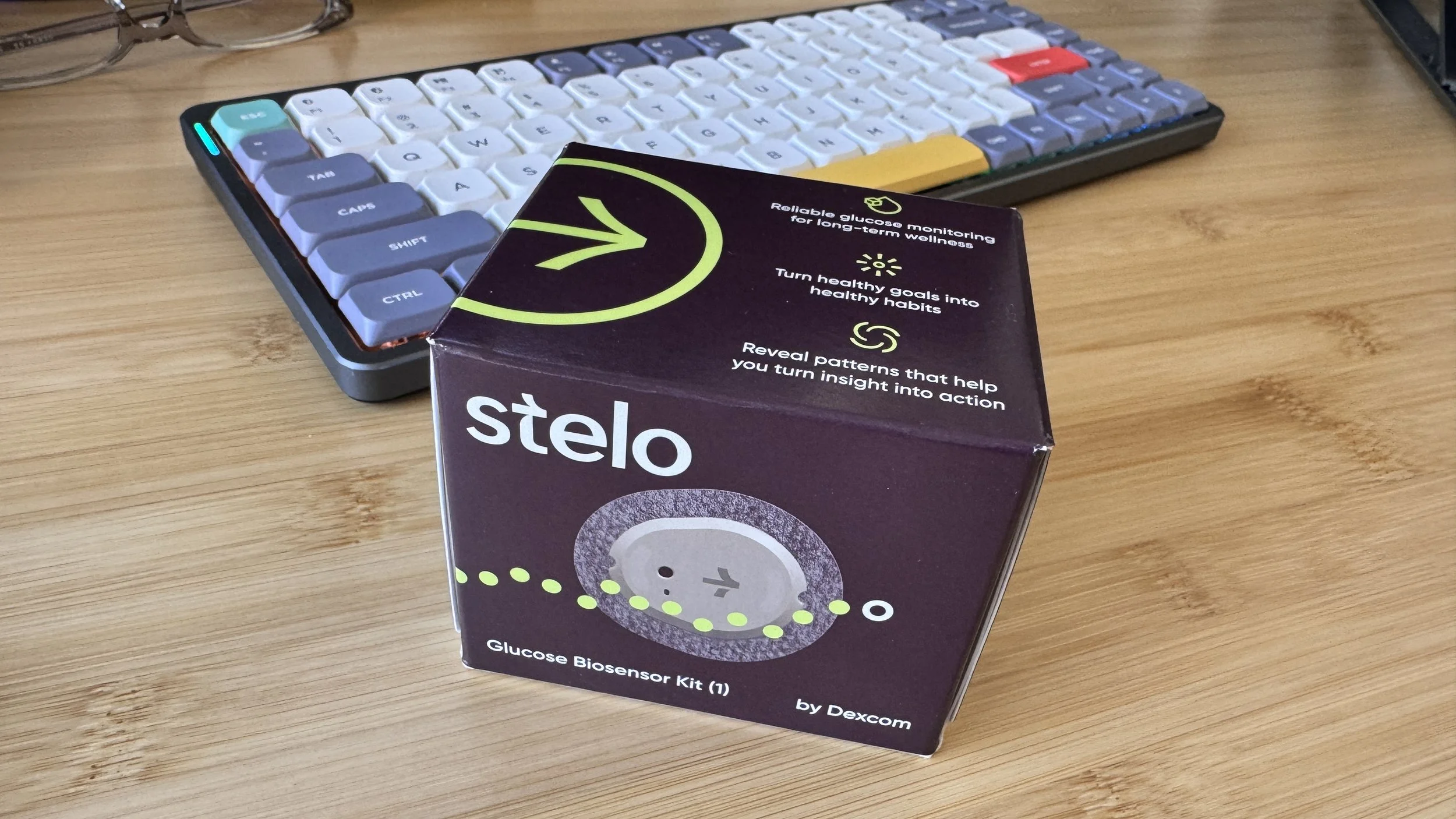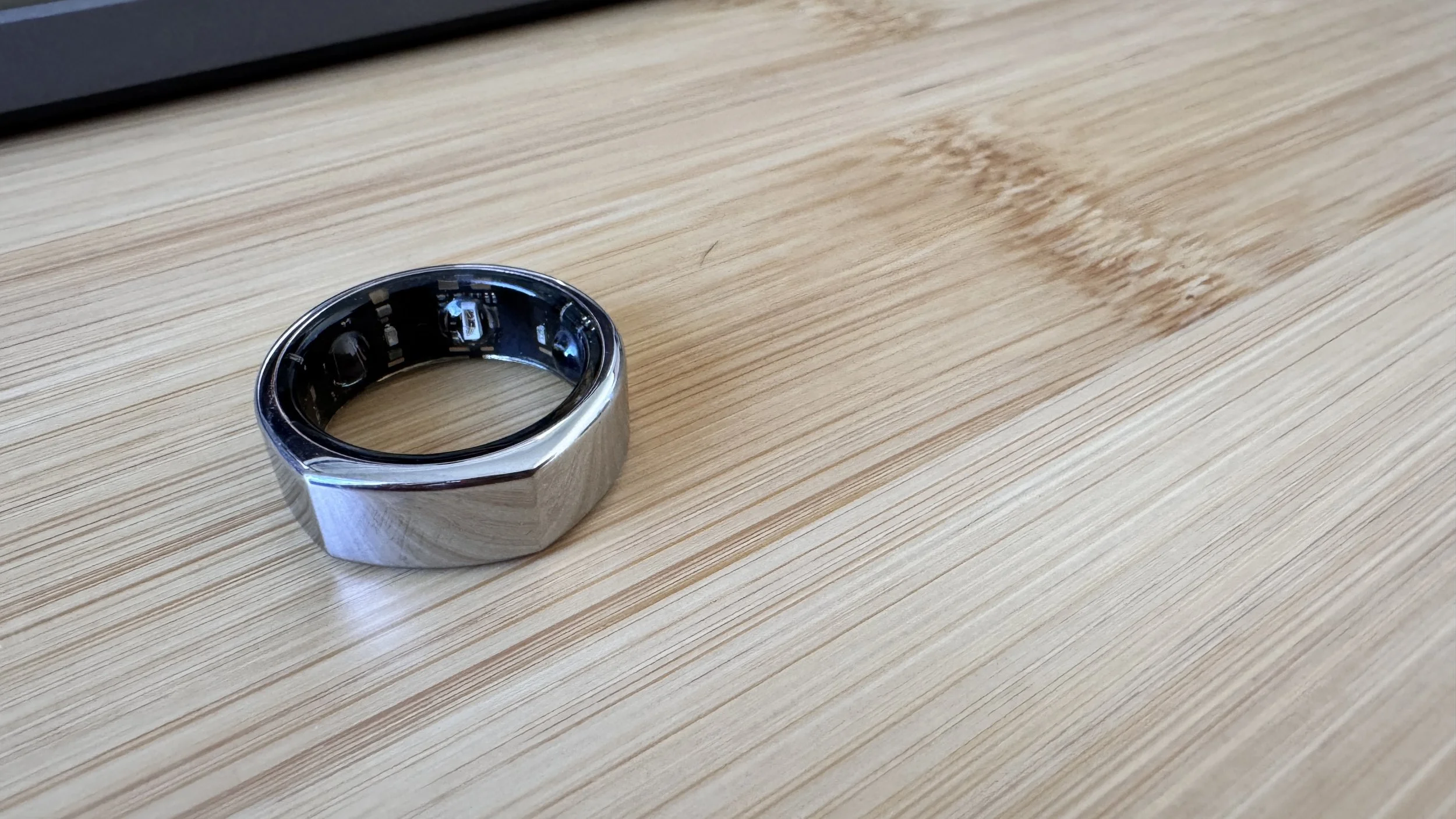Best Health Tech Tools to Optimize Sleep, Glucose & Recovery (Without Getting Overwhelmed) - ep 7
I love health apps and devices. They can be super helpful when you want to optimize your health and feel more in control — but they can also become a little too much. The goal isn’t to track everything perfectly, but to use the right tools to feel better, get stronger, and stay informed without stress.
In this post, I’m sharing the exact tools and apps I use daily to track my glucose, sleep, recovery, and more, especially as I’ve been recovering from a nasty cold. Plus, I’ll talk about how I use them without falling into data overload.
If you prefer to listen or watch, check out the video podcast here.
My Favorite Health Devices & Apps
1. Continuous Glucose Monitor (CGM) – Stelo by Dexcom
This little sensor sits on the back of my arm and tracks my glucose 24/7. I’m not affiliated with Stelo, but I love how easy it is to apply, wear, and interpret the data. The app gives me notifications when my glucose spikes and allows me to add notes or log meals and movement. We all know that food affects our glucose levels, but it’s not only about what we eat but also when we eat, what movements we’ve done and how stressed we are. I try to eat my higher carb meals earlier in the day when I know I’m going to be more active throughout the day. I also find I sleep better when I don’t have it so close to bedtime (see my other favorite apps below!).
Why I love it:
Doesn’t require a prescription and it lasts for 14 days!
Super beginner-friendly
Helps me spot patterns after meals
Motivates me to move more or eat differently based on actual data
📍Note: If you’re brand new to CGMs, you might want to try Nutrisense, which includes a nutritionist and more in-depth guidance. I’ve used it before and really liked the support. It’s one of the first companies that offered use of a CGM with a full program - it was a game changer! You can grab a discount here.
2. Keto Mojo – Glucose + Ketone Testing
I don’t use this daily, but when I want to double-check my CGM readings or see if I’m in a fat-burning state (aka ketosis), I reach for this. It’s a finger-prick test and gives instant readings for both glucose and ketones. Before CGMs were readily available, this is what I started with. I didn’t prick my finger all day long, instead because I was practicing intermittent fasting several days a week, I tended to test before I would break my fast or before the first meal of the day. I don’t usually test my ketones if my glucose is high (above 90) since the likelihood is that I’m not in ketosis (I don’t want to waste my ketone strips 🤣). If I’m getting to some level of ketosis I do check regularly and compare GKI numbers. Interested on GKI, ketones - leave a comment below!
✅ Great for: Fasting, low-carb, or keto-style eaters who want more detailed data.
3. Oura Ring – My Recovery & Sleep Tracker
I’ve worn the Oura Ring for almost four years now and still love it. It tracks sleep, heart rate variability, body temperature, and gives me a daily readiness score. It even nudges me to rest when it senses I might be getting sick — which has been spot-on during my last couple of illnesses. Folks who lift heavy weights might not like wearing while they lift but for me (who doesn’t lift super heavy weights) it doesn’t really bother me.
Top features I use:
Sleep trends + quality insights >> recovery is super important to optimize all the nutrition or movement habits you’re building. If my sleep suffers, I know I’m not at my best!
Recovery suggestions >> thank goodness for ‘Rest Mode’. It’s so easy to keep plugging away and power through whatever ails you. Thank you Oura ring for giving us permission to give it a rest :) Sometimes, we need to just chill and know it’s okay not to get 10k steps or that you’ve been sitting a little longer than usual. It’s going to be okay.
Syncs easily with Apple Health >> having activity sync up to Apple Health and it sync to Stelo helps give a better idea of what’s going on with our blood sugar levels.
4. SnoreLab App – For Sleep Breathing Awareness
This one might surprise you! I use SnoreLab to record my snoring patterns and track how changes (like using a mouth guard or changing sleeping position) affect my breathing. I mean you can track so many things, alcohol intake, food intake, exercises, etc…
I’m a bit obsessed with this one. My dad was a heavy snorer and my snoring has gotten worse over the years. I’ve tried mouth and tongue exercises but not consistently. That’s something I have to really create a habit for but with this current cold recovery I’ve had to put it for future projects.
Snoring can affect the quality of our sleep and I want to alleviate it and do what I can to make sure to minimize it. I’ve got a device I’m currently reviewing - stay tuned!!! I’m really hoping it will work!
🎧 And yes, I actually listen back to my snores. Not always fun — but helpful! It gives me incentive and motivation to continue.
How I Use These Tools in Real Life
Here’s what a typical day looks like for me using these tools:
Morning:
I check SnoreLab + CGM to see how my body did overnight
Coffee + a quick scroll through my glucose trends
Morning walk to stabilize blood sugar (also morning light helps your circadian rhythm and improves sleep that evening)
Midday:
Log meals or activity in my glucose app
Do a short strength or movement burst (squats, jumping, weights) throughout the day
Check in on Oura and CGM for feedback
Evening:
Take a post-dinner walk if needed (especially if I’d had a heavier meal)
Review glucose trends or log meals I forgot to track earlier
Turn on SnoreLab and power down screens before bed
My #1 Tip: Don’t Track Everything.
It’s so easy to become overwhelmed by numbers, graphs, and alerts. That’s why I focus on just one or two key metrics at a time. Right now, I’m looking at my glucose trends and sleep score as I recover.
✨The best tool is the one you’ll actually use. Start small and go from there.✨
If you’re trying to optimize your health or just feel better day-to-day, pick one area to start — maybe sleep, maybe glucose, maybe stress. Use tech to support you, not stress you out.
Let me know if you try any of these tools — and be kind to yourself. Recovery, change, and progress all take time. 💕
Related Links (I note where they may be affiliate links)
Nutrisense (personal referral link)
Keto-Mojo (Amazon Affiliate)
Oura Ring (Amazon Affiliate)
Keep in mind, that some links in the body of the text or from images may lead to affiliate links. This means if you click on them and choose to purchase something I might earn a little commission. Please know that I do not recommend any products that I wouldn’t use myself. However, some of these are health products, so please consult with your physician or care team for proper use. What I’m sharing here is my personal journey and not meant to prescribe or diagnose.




